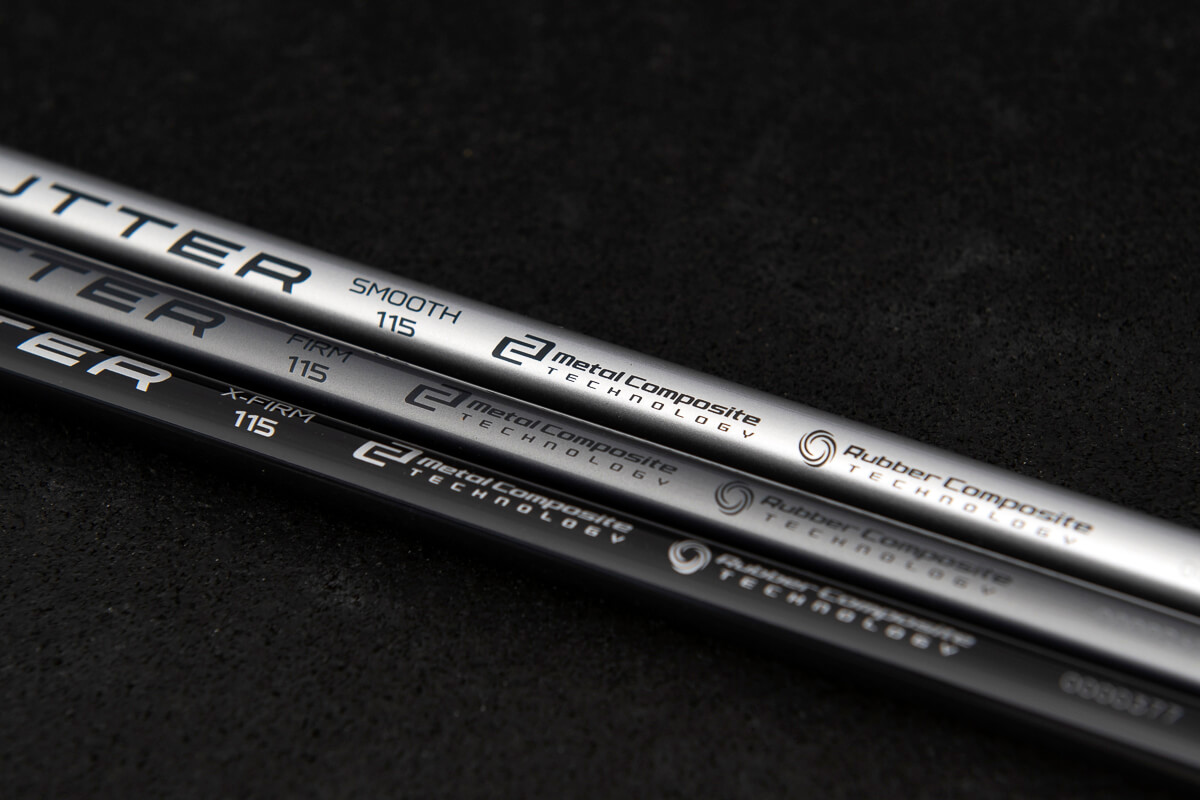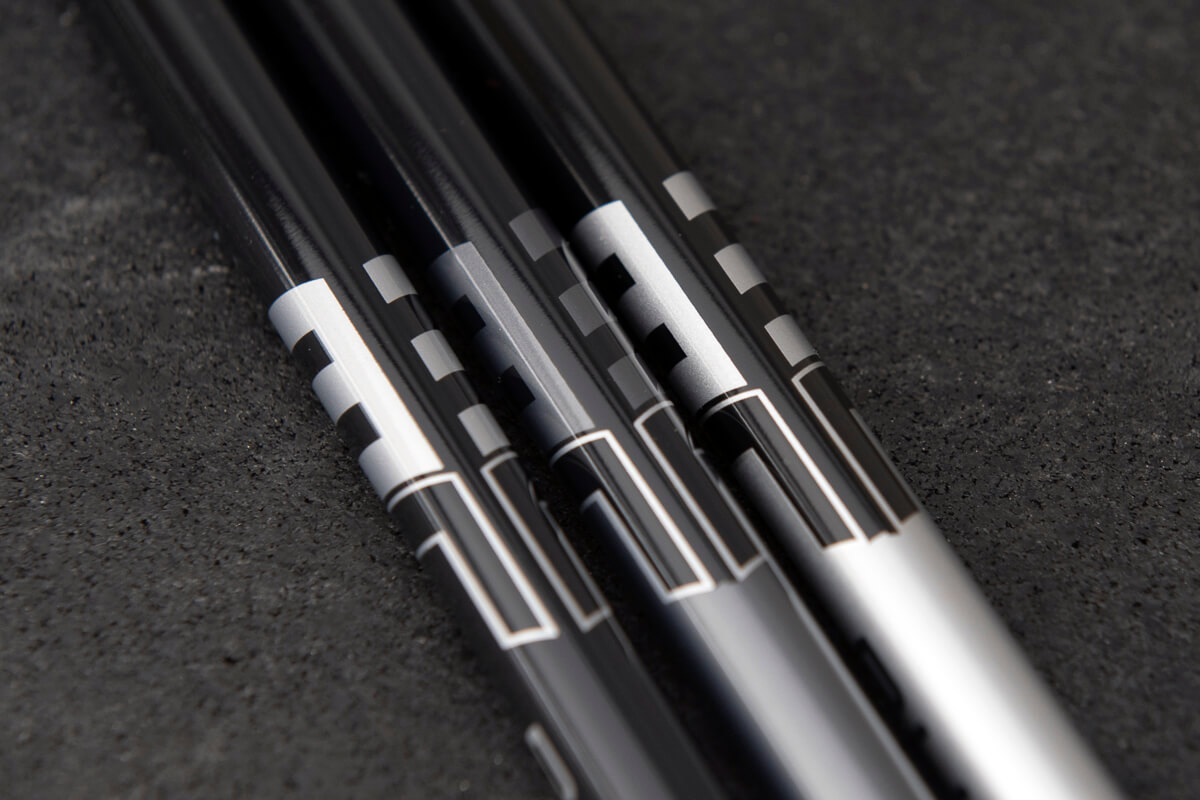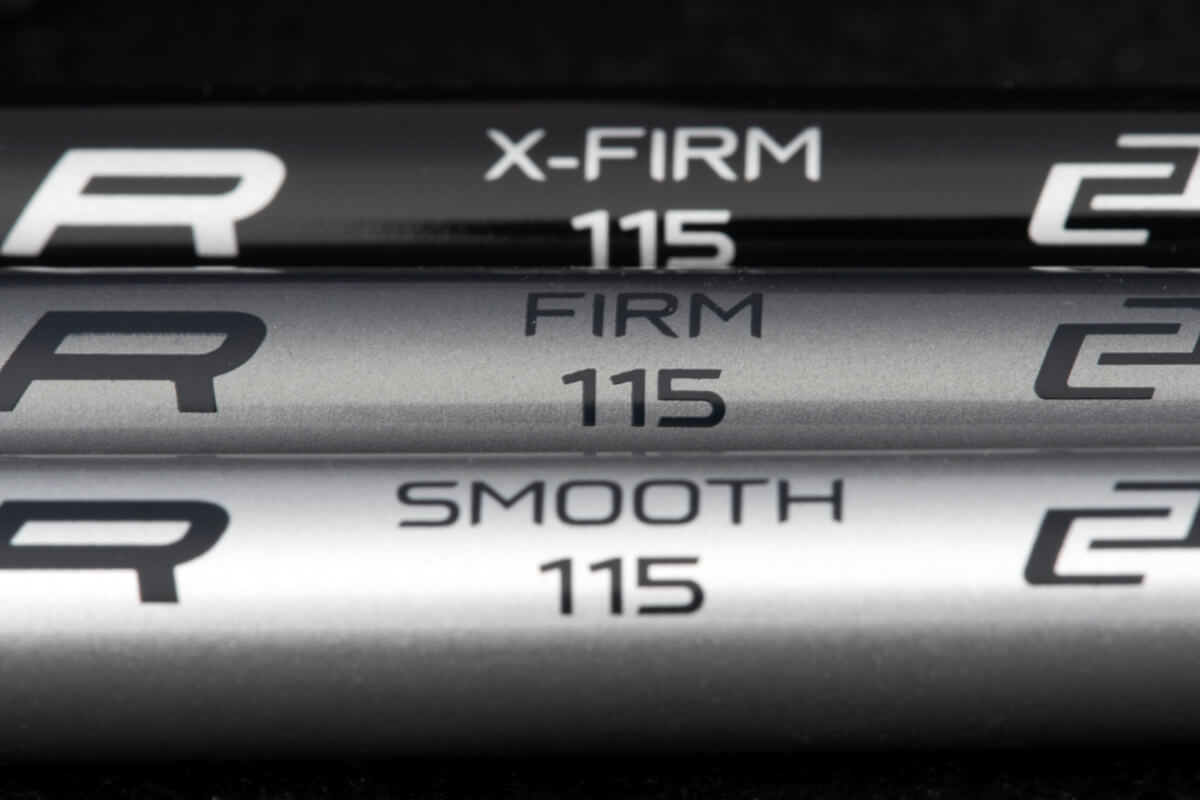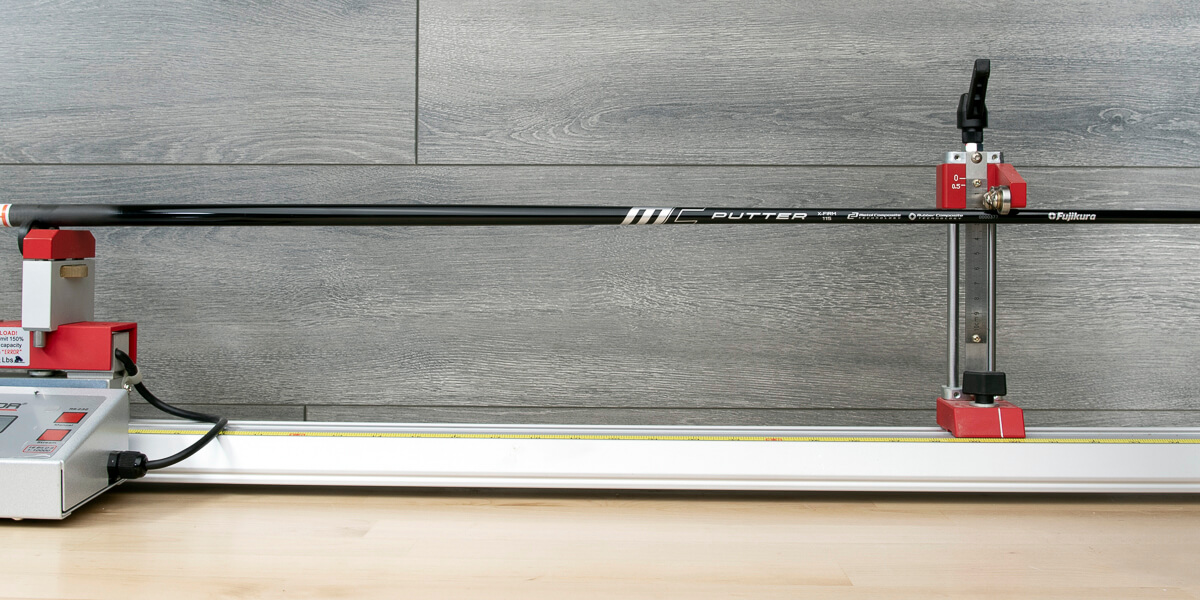- The Fujikura MC Putter is the second generation of the company’s putter shaft line.
- It’s available in three distinct flex profiles to fit a variety of putting strokes.
- Retail price is $250.
The graphite/composite/multi-material—whatever you want to call it—putter shaft is far from ubiquitous but things are changing. Callaway nearly made it mainstream with Stroke Lab. Bryson has 14 graphite shafts in the bag, including an LA Golf Partners putter shaft. Yours Truly is playing the BGT Tour in my putter. Mitsubishi has a couple of options, too, and the more recent addition to the growing cadre of alternatives to steel for your putter is the second generation of MC Putter shaft from Fujikura.
While it may not come with a side of fries or a plastic toy, the MC Putter is yet another option that suggests that maybe, just maybe, the future of shafts is graphite.
Why Graphite?
Before we dig into specifics, we should probably rewind a bit to talk about why you might want a graphite putter shaft.
They’re fancy. End of story.
I kid …
As you’d expect, every brand that makes a graphite putter shaft offers its own set of performance justifications. While there’s a good bit of variety across the board, a common thread is the notion that graphite putter shafts offer lower torque.
The idea is that even though the collision between putter and ball happens at considerably lower speed than it does with the driver, when off-center impact occurs, graphite putter shafts are more resistant to twisting. That keeps the putter face from deflecting, resulting in more consistent speed and starting line, tighter dispersion and possibly a higher make percentage.
Fujikura MC Putter
For Fujikura’s part in all of this, with the MC Putter the company hopes to bring more of a fitting element into the discussion. The lineup consists of three models. All are 115 grams but, like other Fujikura shaft offerings, there’s a bit of variety in the bend profiles.
Fujikura’s early data suggests that, depending on the golfer, one model will almost certainly work better than the other two. The research into understanding exactly why is ongoing.
MC Putter—Smooth
Of the three MC Putter models, the Smooth has the softest profile. The preliminary evidence suggests the Smooth works best for golfers with longer putting strokes. Fujikura says the Smooth can help improve rhythm and enhance the feel of the head during the stroke.
The key point is that the Smooth’s soft flex doesn’t bring higher torque. While the Smooth is only 307 CPM (steel runs 425-450), it has just 1.3 degrees of torque, the lowest of the MC Putter series.
For context, steel putter shafts have higher torque (2-2.5°). The LAGP offering is around two degrees, while the Stability Shaft runs a bit lower at around one degree.
MC Putter—X-Firm
On the opposite end of the MC Putter lineup is the X-Firm. At 607 CPM, it’s likely the stiffest putter shaft on the market and, anecdotally, it’s about as easy to bend as a piece of rebar.
Fujikura says the X-Firm (1.6 degrees of torque) typically works better for golfers with a short “pop” stroke or those who like the feel of a stiffer shaft.
MC Putter—Firm
The MC Putter Firm splits the difference at 454 CPM. The Firm typically works well for golfers with an intermediate stroke. It’s not as smooth as the Smooth but it should feel smoother than steel.
MC Putter Construction

To achieve the unique performance of the MC Putter line, Fujikura took a unique approach to construction.
An eight-inch section of steel is interlayed with the carbon fiber in the tip to create low torque without having to layer an excessive amount of material. The steel is balanced by copper in the butt section which creates a more centralized balance point. Finally, a rubber core is co-cured with the carbon fiber over the length of the shaft to enhance feel.
When everything comes together, you end up with swing weights that are just a bit heavier than steel and a bit lower than the Stability Shaft.

The Soft Sell
I cant’ tell you that you NEED an MC Putter shaft. We’re only just starting to test them ourselves but it is an intriguing option, even if you’ve never considered the need for an alternative to steel in your putter.
Unfortunately, compatibility is currently limited to plumber’s neck designs (.335 or .370). Fujikura is working on an adapter to allow the MC Putter to fit into nearly any putter. While that’s certainly a significant limitation the greatest barrier to entry—as it often is—is likely cost.
The Fujikura MC Putter shaft retails for $250 which is admittedly a lot for anyone who, before right now, has never given a moment’s thought to upgrading their putter shaft. I’m guessing that’s most of you.
The MC Putter shaft is available now. For more information, visit FujikuraGolf.com.




















7 Deadly Swings
3 years ago
I don’t have a problem at all with the price, plenty of affordable options out there. What I have a problem with is, for a putter – or any club really, i want to try it before I commit to spending the money. I’m looking for all the help I can get on the greens but I’m hesitant to spend $250 before I even know which of their three options is the best fit for me.